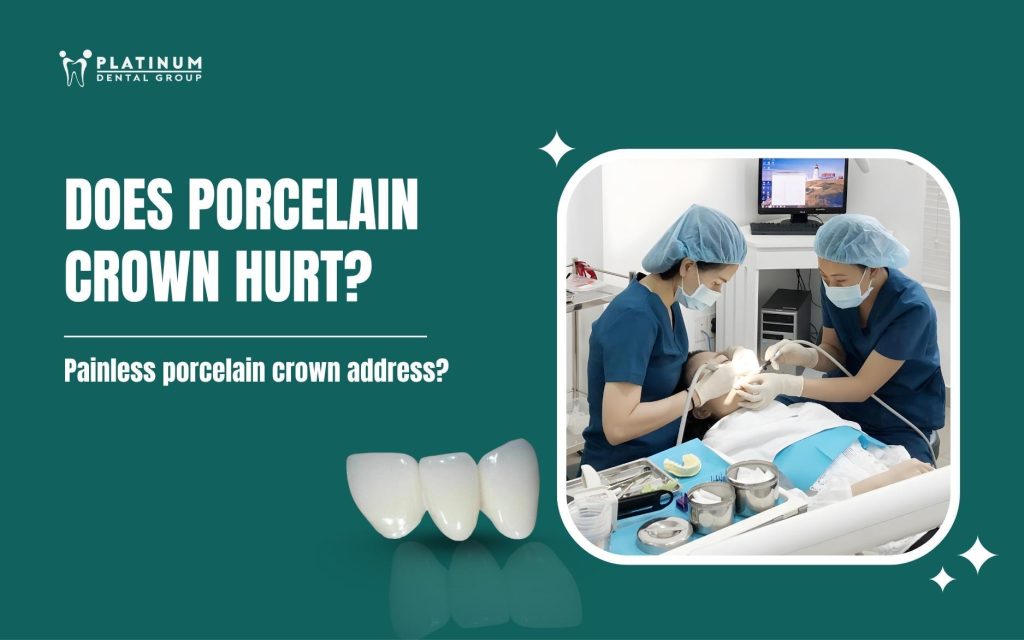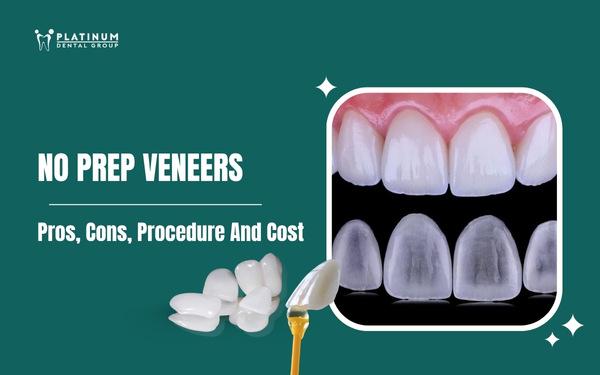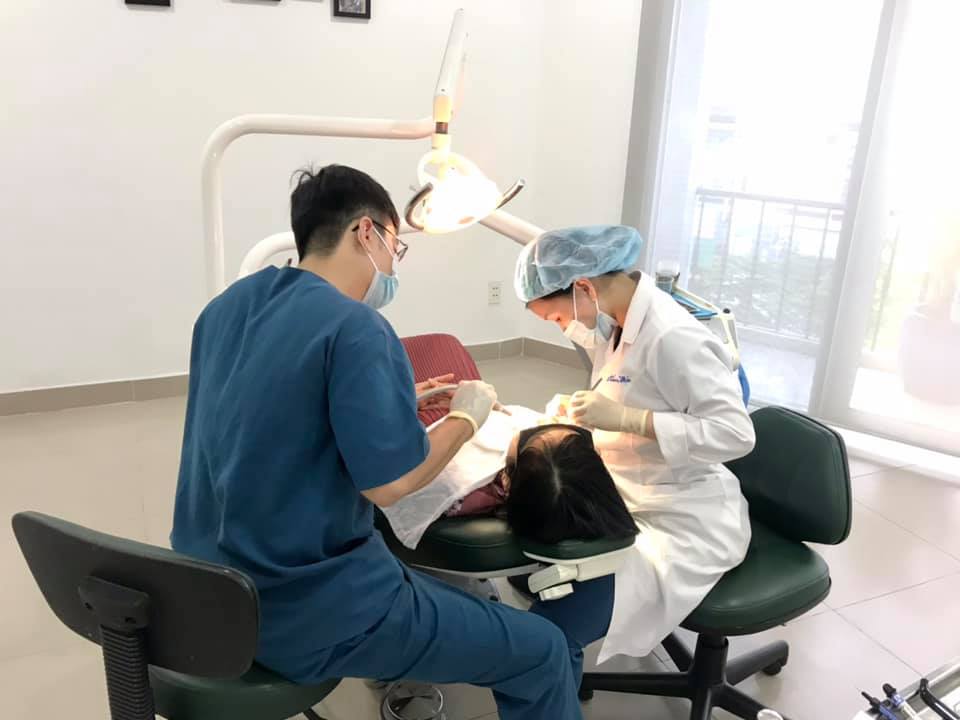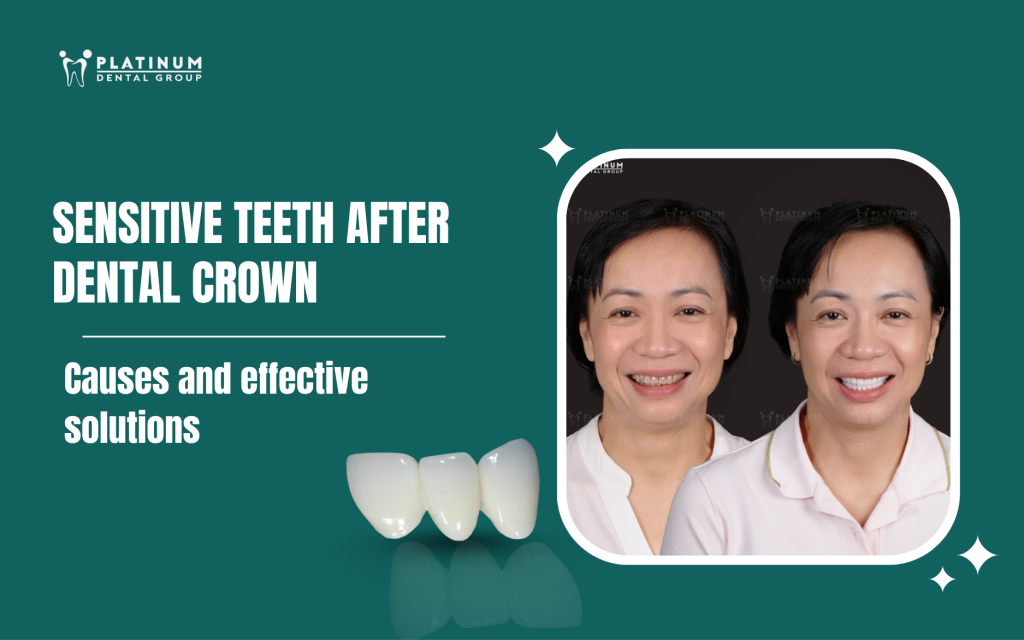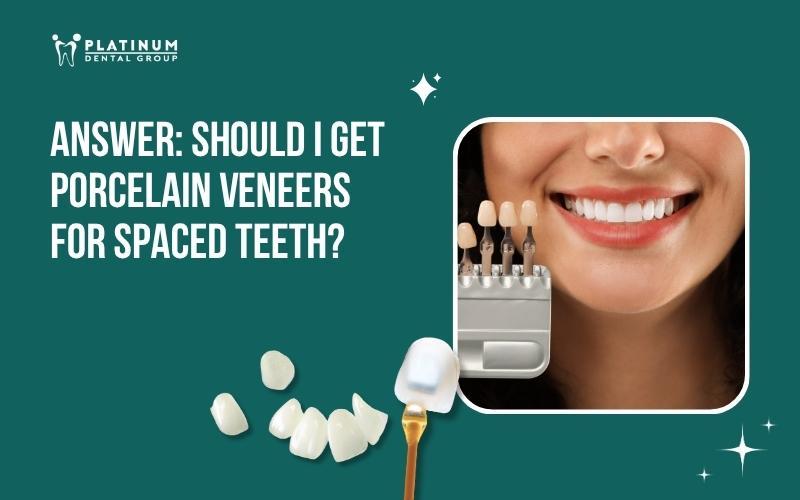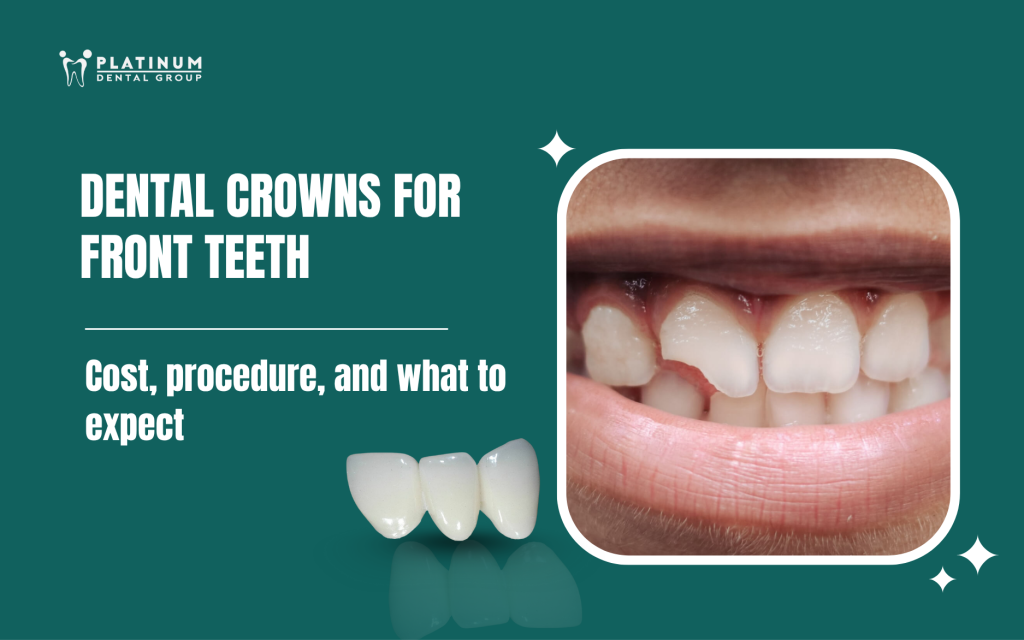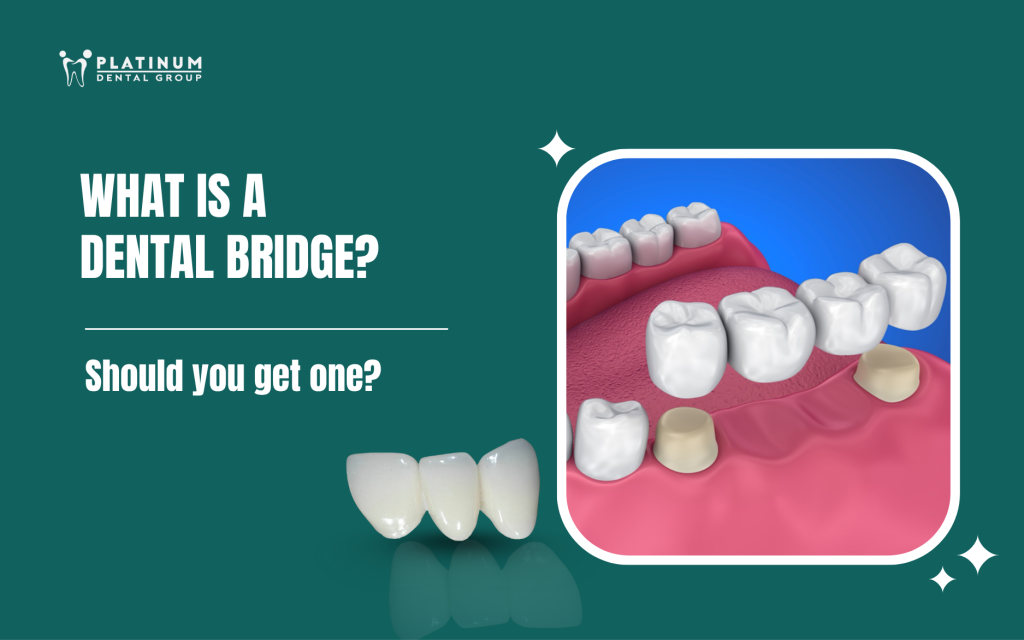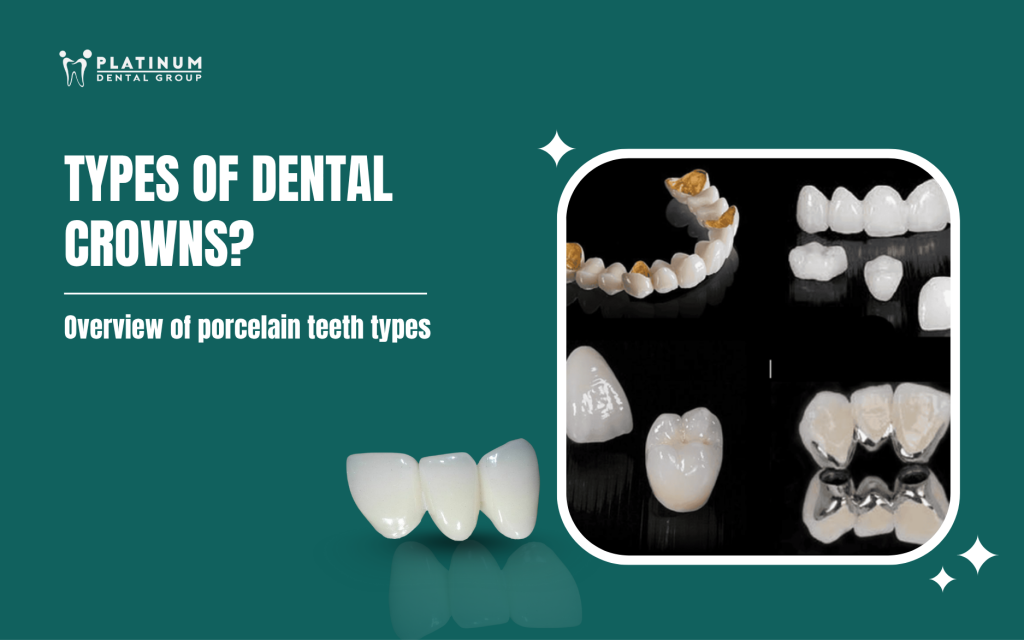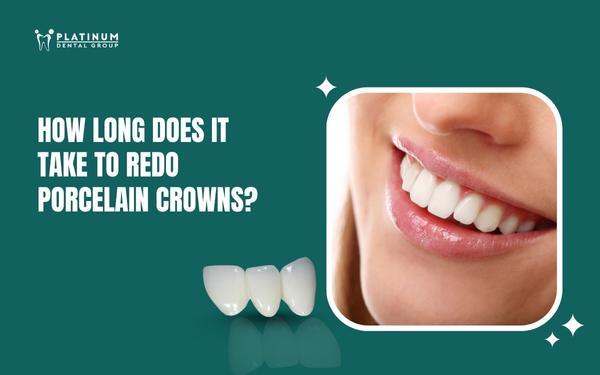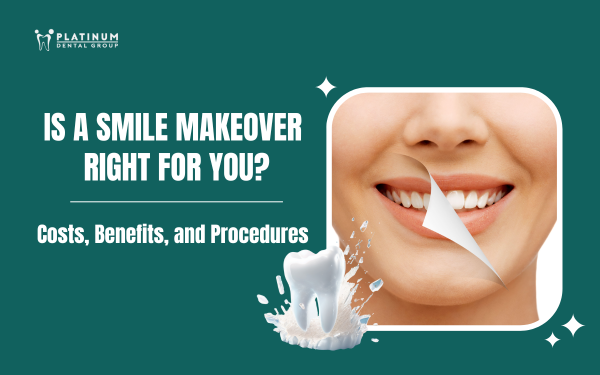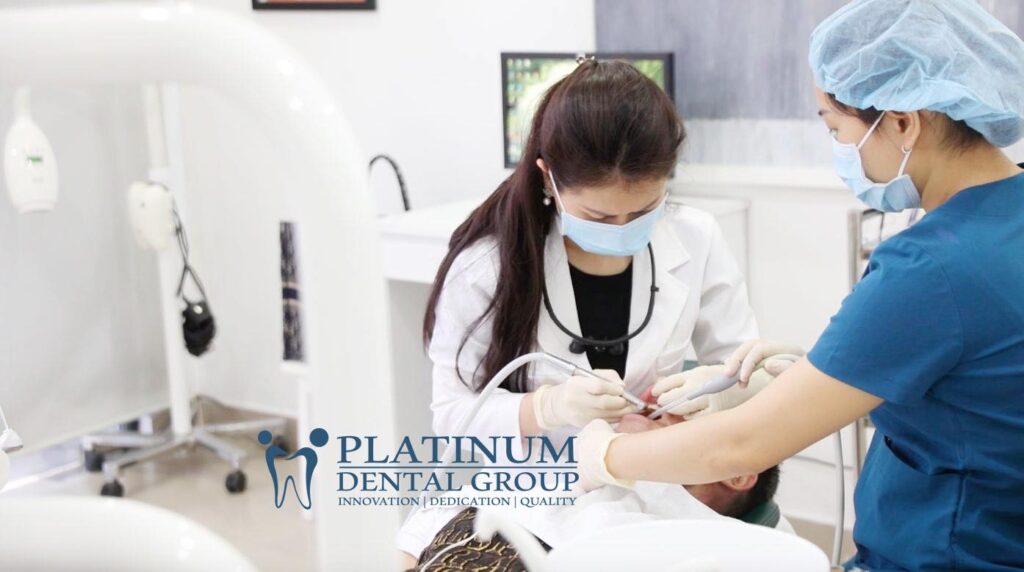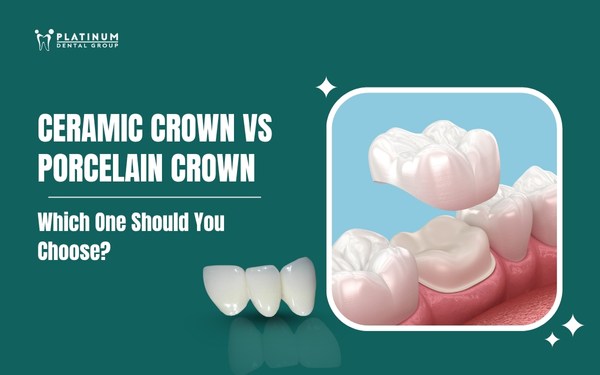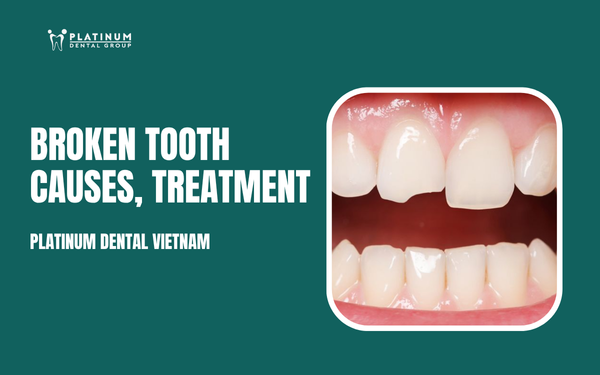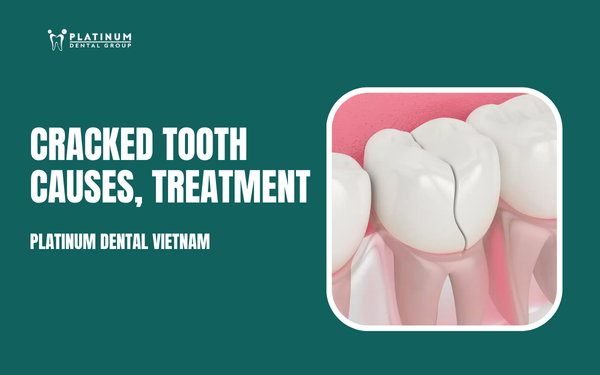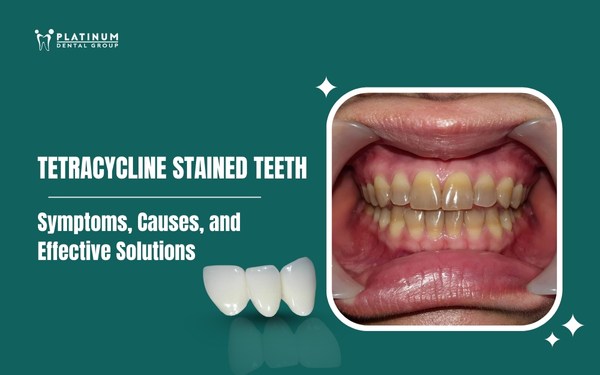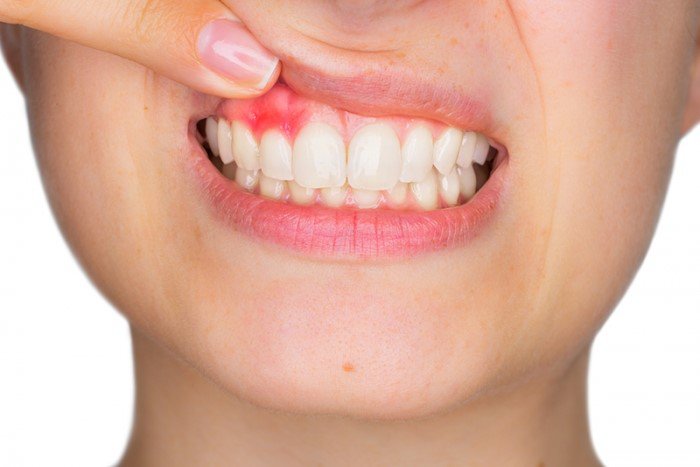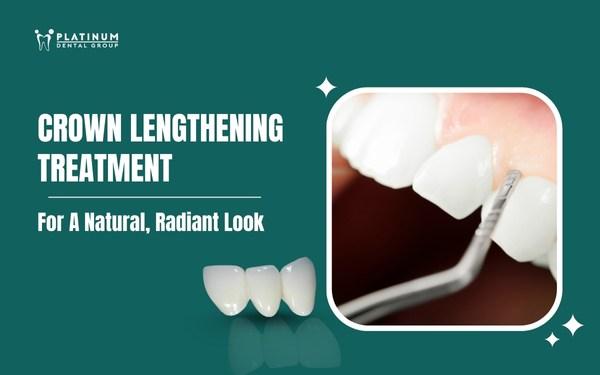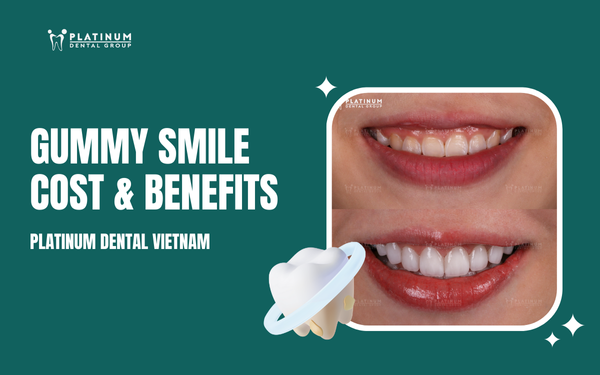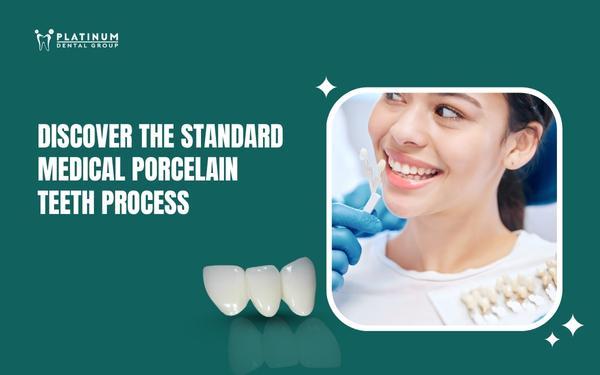DOES A PORCELAIN CROWN HURT: Painless porcelain crown address
Possessing a bright, straight, and beautiful smile not only boosts your confidence but also significantly enhances your quality of life. Among the aesthetic options, the dental crowning procedure is increasingly favored due to its high aesthetic appeal and ability to fully restore chewing function. However, many people still harbor concerns about whether the dental crowning process is painful. Will this popular method cause sensitivity or discomfort? Let Platinum Dental Group delve into this issue in detail in the article below!
Nội dung bài viết
- 1 Does a porcelain crown hurt?
- 2 Causes of pain when making porcelain teeth
- 3 Does Dental Crowning Cause Bleeding or Swelling?
- 4 Methods for Pain Management and Post-Crowning Dental Care
- 5 Platinum Dental Group – Address for painless porcelain teeth, ensuring safety and prestige
- 6 Frequently Asked Questions (FAQ) about Dental Crowning and Pain
- 6.1 How long does the dental crowning process take? Is it painful throughout the procedure?
- 6.2 Is root canal treatment required for dental crowning?
- 6.3 Why Does Sensitivity Persist After Dental Crowning?
- 6.4 Can I redo dental crowns if they cause pain?
- 6.5 Are dental crowns sensitive to temperature or food?
Does a porcelain crown hurt?
The fear of pain is often a major barrier that causes many people to hesitate before committing to dental crowning. However, you can be completely at ease because local anesthesia will be administered by the dentist throughout the procedure to minimize pain perception.Therefore, most customers feel that this process is very gentle, and do not even realize that the grinding process is taking place.
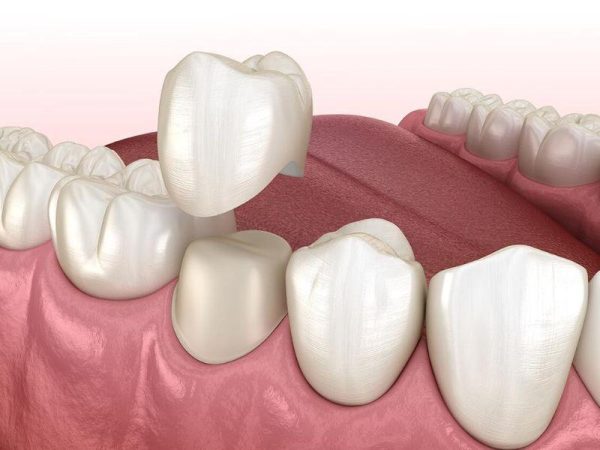
After the local anesthetic wears off, the body may react slightly with fleeting sensitivity or temporary pain, but this is an entirely normal phenomenon. This condition typically disappears within 1−2 days if you adhere to proper post-treatment care and have the procedure performed at a reputable clinic.
Nonetheless, the degree of pain also depends on various other factors, such as the dentist’s skill, supporting technology, the type of porcelain material used, and, especially, the post-crowning care regimen. Therefore, selecting a high-quality dental clinic is the key factor that will allow you to experience a smooth, gentle, and pain-free dental restoration process.
You may be interested in: Are Porcelain Crowns Good? Should You Get a Porcelain Crown?
Causes of pain when making porcelain teeth
Although porcelain teeth are a modern and safe cosmetic method, many people still experience pain after the procedure. So what is the cause of your discomfort or prolonged pain? Below are common reasons that you should pay attention to in order to be best prepared before deciding to have porcelain crowns.
Poorly Trained Dentists
Dental crowning is not simply bonding a crown onto a natural tooth; it is a process that demands high meticulousness and precision, particularly during the tooth preparation phase. If the performing dentist lacks experience or has inadequate technique, excessive reduction or incorrect proportions can lead to pulp invasion, resulting in persistent pain afterward. This is the most common reason why many people are ‘haunted’ by the thought of getting dental crowns.
Undiagnosed or Untreated Oral Diseases
Before dental crowning, issues such as dental decay, gingivitis, or periodontitis must be treated thoroughly. If you proceed with the crowning process without fully resolving these conditions, the crown will cover the lesion, allowing bacteria to continue silent development underneath. This leads to internal inflammation, pain, and may even affect adjacent teeth.
Read more: Key aspects of Veneer Dental solutions
Outdated Machinery and Equipment
The dental restoration process requires precise support from technology, from taking impressions to designing and fabricating the crown. If a clinic uses old or outdated equipment, the crown may result in improper bite alignment (occlusal disharmony), size discrepancy, or a poor fit against the natural tooth. This not only causes difficulties with chewing but can also result in persistent tooth pain, discomfort, and even peri-crown inflammation.

Substandard Porcelain Material
The quality of the dental crown material directly impacts both the sensation and safety during use. If the clinic uses counterfeit or unverified porcelain, the restoration may chip, crack, or cause irritation to the gum tissue. When the crown does not closely fit the natural tooth, bacteria can seep underneath, leading to bad breath, gingivitis, and prolonged pain.
Improper Post-Treatment Care Regimen
Even if the crowning process goes smoothly, subsequent care is also pivotal in maintaining the health of the dental restoration. If you fail to adhere to proper eating habits (chewing too forcefully, consuming overly hot/cold food), neglect hygiene, or have a habit of grinding your teeth (bruxism) while sleeping without using a protective night guard, the crowns are susceptible to damage, resulting in pain or gum swelling.
Advice: To avoid unnecessary pain, you should choose a reputable clinic with highly skilled dentists and strictly follow the post-crowning care instructions. This is the “golden key” to obtaining durable, beautiful, pain-free dental crowns without complications.
Does Dental Crowning Cause Bleeding or Swelling?
One of the common questions of customers before getting porcelain teeth is: Will this process cause bleeding or swelling? This is a completely understandable concern, especially for those who have sensitive skin or have experienced complications after dental work. In fact, when performed properly at a reputable dental clinic, the porcelain tooth covering process is gentle, does not cause bleeding or pain. During the process of grinding teeth or attaching porcelain crowns, the doctor only affects the outer enamel layer without penetrating deep into the gum tissue, so the risk of serious damage is very low.
However, some individuals may still experience minor gum swelling or slight numbness/ tenderness during the first 1−2 days after the procedure. This is a completely normal physiological reaction as the body adapts to the change. This condition will quickly improve if you follow the post-treatment care instructions correctly, such as rinsing with warm salt water, applying a cold compress to the cheek, drinking plenty of water, and avoiding chewing on the newly crowned side.
Dental crowning does not cause severe bleeding or swelling if performed with the correct technique. Choosing a reliable dental clinic will help give you peace of mind and minimize unwanted complications.
Methods for Pain Management and Post-Crowning Dental Care
Proper care following the dental crowning procedure not only helps alleviate discomfort but also plays a crucial role in extending the lifespan of the dental restoration and preventing complications. Below are some simple yet highly effective measures that you should implement immediately after completing the procedure:
Stay Hydrated and Keep the Oral Area Moist
Drinking sufficient water keeps the oral cavity consistently moist, thereby limiting the growth of bacteria that can cause inflammation. Additionally, water helps soothe the recently affected gum tissues, making you feel more comfortable.
Rinse with Warm Salt Water for Antibacterial Action
Warm salt water has natural antibacterial properties, helping to cleanse the oral cavity and prevent inflammation after the procedure. You should gently rinse your mouth with salt water 2-3 times daily, especially after meals, to keep the newly crowned area clean and healthy.
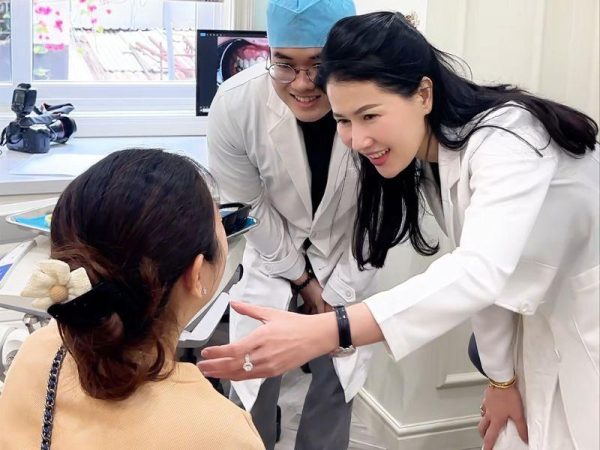
Apply Cold Compress to Reduce Swelling and Pain
During the first 24 hours after dental crowning, if you feel pain or minor swelling, you can wrap ice in a clean cloth and apply it to the outside of your cheek for about 10−15 minutes per session. This method helps constrict blood vessels, reduces swelling, and quickly soothes the sensation of pain.
Use a Mouthguard During Sleep or Eating
If you have a habit of teeth grinding (bruxism) while sleeping or frequently consume overly hard foods, you should use a protective night guard as instructed by your dentist. This helps limit the force exerted on the dental crowns, preventing chipping, debonding, or subsequent pain.
Use Pain Medication as Prescribed by the Dentist (If Necessary)
In some cases, you may experience more pain than is typical. At this point, the dentist will prescribe mild pain relievers for support. However, you must absolutely refrain from self-medicating or using unverified drugs, as this can cause dangerous side effects or worsen your dental condition.
Read more: Should You Rinse with Salt Water After Dental Crowning? Why?
Platinum Dental Group – Address for painless porcelain teeth, ensuring safety and prestige
If you still have concerns about whether dental crowning is painful, let Platinum Dental Group help you eliminate this fear.
Why Choose Platinum Dental Group?
Expert Team of Dentists
At Platinum Dental Group, the porcelain crown process is directly performed by a team of specialized and experienced doctors. Headed by Dr. Tran Lan Anh – Cosmetic Dentistry and Dental Restoration Specialist in Vietnam, with more than 16 years of surgical experience and international training. She has successfully restored porcelain teeth for more than 3,000 customers, from simple to complex cases, including artists, businessmen and celebrities.
The hallmarks of Platinum Dental’s aesthetic restoration style are:
- Precise tooth preparation technique, minimizing invasiveness.
- No pain, no sensitivity, and no root canal treatment required in the majority of cases.
- Dedicated consultation that respects the client’s unique facial proportions and personal preferences.

At Platinum, our team of doctors strictly rejects the use of mass-produced, industrial restorations. Every set of dental crowns is custom-designed and personalized according to each client’s unique facial proportions, skin tone, and oral architecture. Overall harmony is prioritized, preserving individual characteristics while enhancing a modern and natural aesthetic.
Simultaneously, the crowns are ensured to have a precise, standardized bite (occlusion), allowing clients to chew comfortably and maintain sustainable oral health.
See also: Essential details related to tooth crown options
Equipment and materials meet international standards
Not only is Platinum Dental Group superior in medical skills, it also invests in a modern equipment system, applying 3D CAD/CAM technology, helping the process of designing and manufacturing porcelain teeth to be quick, precise and fit perfectly with real teeth. Thanks to that, it helps to minimize the feeling of pain or discomfort when chewing.
All porcelain materials at Platinum are imported from Germany, the US and Japan, meeting international medical standards, absolutely safe for oral health and do not cause gum irritation.
Thousands of customers trust and are satisfied
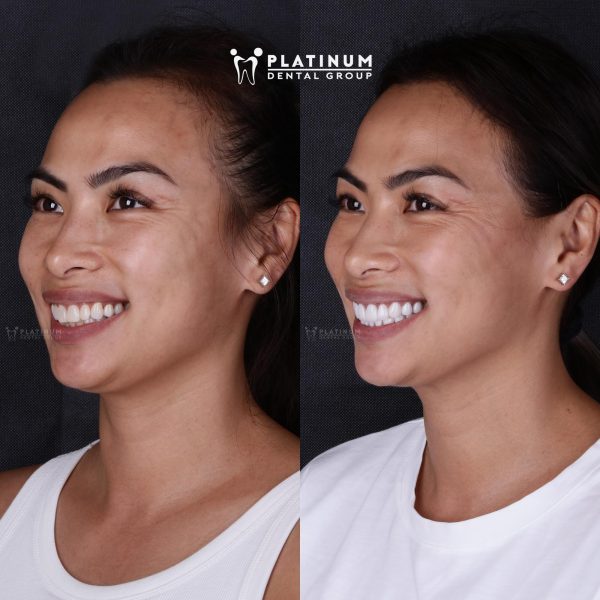
Platinum Dental Group has accompanied over 10,000 clients on their journey to achieving a perfect smile. Many clients share that they did not feel any pain or sensitivity throughout the dental crowning process—even those who are typically highly sensitive to dental procedures.
Image of customer having porcelain teeth done at Platinum Dental Group
Ms. Noeline Rose sent her thanks to the Platinum Dental Group team after completing her porcelain dental implant surgery
Frequently Asked Questions (FAQ) about Dental Crowning and Pain
Below are common inquiries related to pain perception during the dental crowning process. You can refer to this section to gain a clearer understanding of the procedure!
How long does the dental crowning process take? Is it painful throughout the procedure?
Typically, a dental crowning case is completed within 3-5 days, involving about 3 appointments: tooth preparation, impression taking, and final crown placement. You will receive local anesthesia during the process, meaning you will experience virtually no pain. After the anesthetic wears off, there might be slight temporary sensitivity, but this quickly disappears within 1-2 days with proper care.
Is root canal treatment required for dental crowning?
Root canal treatment is not mandatory for dental crowning. It is only necessary for teeth that are already suffering from pulp inflammation, infection, or severe damage. In most normal cases, the dentist will preserve the pulp to maximally save the natural tooth, ensuring you remain pain-free after the process is complete.
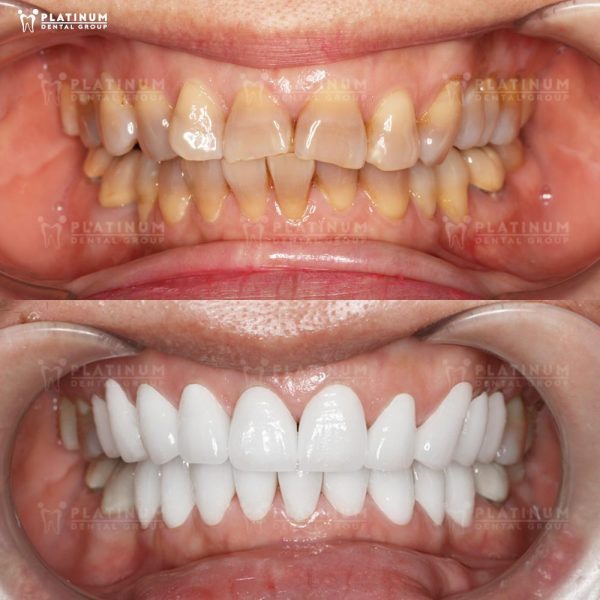
Why Does Sensitivity Persist After Dental Crowning?
Prolonged sensitivity can result from several factors, such as:
- Excessive or improper tooth preparation (filing).
- A poorly fitted crown, causing gaps or an elevated bite (occlusal high spot).
- Existing oral diseases that were not completely resolved before the procedure.
In these instances, you should immediately visit a reputable dental clinic for prompt examination and resolution, preventing prolonged issues from affecting your natural teeth and overall health.
Can I redo dental crowns if they cause pain?
Absolutely. If the current crowns cause persistent pain or do not fit your bite, the dentist can remove the old crowns and redo the process from the beginning with superior technique, ensuring the discomfort is eliminated and achieving a better aesthetic result.
Are dental crowns sensitive to temperature or food?
During the first few days after the crowning procedure, you may notice some temperature sensitivity—especially when consuming overly hot or cold items. However, this is a normal, temporary phenomenon and will quickly subside once the teeth adapt. If the procedure is performed correctly and you maintain proper care, your dental crowns will be completely non-sensitive, unlike previously damaged natural teeth.
If you still have concerns about whether dental crowning is painful, visit Platinum Dental Group directly to experience a gentle, pain-free, and absolutely safe crowning procedure with our team of experienced aesthetic dentists. After just a few appointments, you will achieve a straight, beautiful, and natural smile without worrying about sensitivity or discomfort. Book your appointment today via hotline 0967 797 799 for a free consultation with our doctors!
Learn more:
- Core principles of Implant Dentistry
- Key factors influencing Dental Implant cost
- Essential details related to all on four Dental Implants
- Essential details related to full Dental Implants near me
Platinum Dental Group
Clinic Locations:
📍Platinum Dental Central: 127 Nguyen Cu Trinh Street, Cau Ong Lanh Ward, Ho Chi Minh City
📍Platinum Dental Thao Dien: 1H Street 10, An Khanh Ward, Ho Chi Minh City
📞 Hotline: (+84) 28 3920 9969 | 096 779 7799
✉️ Email: info@platinumdentalvietnam.com
🌐 Website: https://platinumdentalvietnam.com/
💬 Instagram: https://www.instagram.com/platinumdental.vietnam/
🔗 Facebook: https://www.facebook.com/platinumdentalvn



 Tiếng Việt
Tiếng Việt